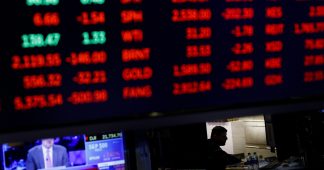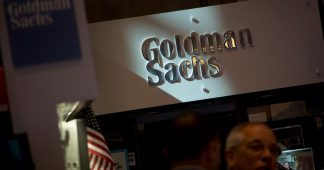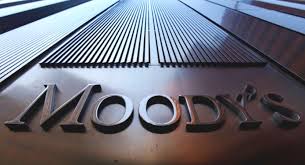You don’t have to be a redditer or a big investor to enjoy these Hollywood blockbusters that double as the perfect educational resource
By Luke Buckmaster, with Stephanie Convery and Alyx Gorman
The GameStop debacle has put the stock market on everyone’s radar this week – even those who rarely pay it any attention. Many are depicting the incident as a David-and-Goliath battle between small investors gathering on Reddit message-boards and Wall Street powerbrokers finding themselves unexpectedly on the back foot at their own game. Billions of dollars are in the balance.
Along with such major news events, though, come the instant internet experts. Let’s face it: most of us understand diddly squat about the stock market and rely on Hollywood to inform us about an industry that it portrays as a place in which, to quote from the tyrannical, fictional Gordan Gekko: “lunch is for wimps”.
Want to join the conversation about GameStop? Here are five films and TV shows that might help you muddle your way through.
1. Black Monday
Don Cheadle turning charm and smarm up to 100. Regina Hall in blue eyeshadow and big 80s hair. Tony-award winning Andrew Rannells adding another besuited straight-edger to his acting credits, along with The Book of Mormon’s Elder Price – at least at first. Black Monday, in this series, refers to 19 October 1987, still the single worst day for America’s stock market. Produced by Seth Rogen, this technicolour comedy purports to tell the story of who caused the crash that day and how. It’s a kind of cocaine-fulled narrative rollercoaster in which everyone is double-crossing everyone else and you’re never quite sure which character to root for – until you realise that the answer is none of them.
2. The Wolf of Wall Street
In this film, Martin Scorsese – a director celebrated for making great gangster movies – turned his focus to Wall Street, applying the same kind of “rise and fall” narrative structure as his films about the Mafia. The Wolf of Wall Street was inspired by former stockbroker Jordan Belfort (adapted from his memoir of the same name), who reacted to the film by suing the financiers and requesting $300m in compensation.
Scorsese’s film is damning in his portrayal of Wall Street culture as a pit of toxic masculinity and various kinds of “isms” – hedonism, chauvinism, sexism. The film suggests succeeding as a big-name stockbroker involves not only being ruthless and calculating but also putting on a show and appealing to people’s base instincts – like an inspirational speaker or a late night TV evangelist. “There is no nobility in poverty”, Leonardo Di Caprio’s Belfort tells his sales team during a shouty pep-talk. In this portrayal, there was no nobility in wealth either.
Continue reading at www.theguardian.com











